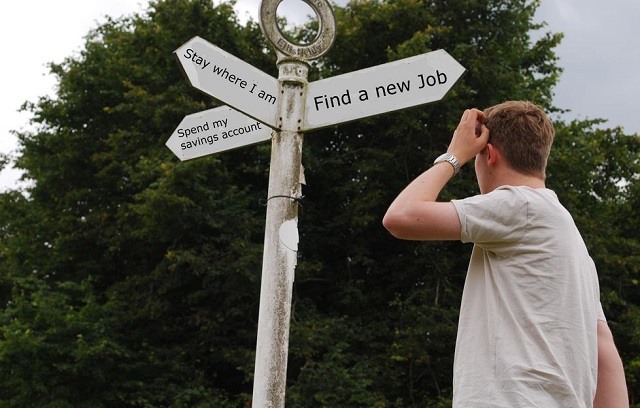The thing is, our first jobs, no matter how ridiculous, are going to stay with us; they’re going to teach us things we would never learn elsewhere, and to a certain extent, shape the person we’ll become later in our professional lives. Here are seven important lessons you’ll learn from your first job.
1. People Skills are 90 Percent of Any Job.
The other 10 percent consists of the actual skills you learned at college or otherwise acquired along the way. The problem is, we don’t exist in a bubble; we’ll have to deal with other people pretty regularly. Knowing how to communicate effectively, as well as being personable, is going to be (for some of us) the hardest part of the job. Even if you work from home as an independent contractor, you still answer to (and will have to interact with) real people.
2. You Need to Stay Two Steps Ahead.
Our success at our jobs – no matter the job – is less about any given moment, day or project, and more about the next. Anticipation is a thing we’ll learn early, whether it’s anticipating what a customer will want before they know how to ask for it, or anticipating the next demand our boss will make. If our first jobs teach us anything, it’s that one of the quickest ways to distinguish ourselves in the workplace is to take initiative. Don’t wait around to be told what to do; don’t make any assumptions, either, but if you’re given a chance to jump on the next thing that needs doing, without being instructed to do so, you’ll probably be rewarded.
3. Don’t be (Too) Afraid to Make Mistakes.
Conventional wisdom tells us that human beings learn from our mistakes. Science tells us that we may learn better from our triumphs. I suspect the truth is somewhere in the middle. When it comes to tackling a job, you’re almost guaranteed to slip up once in a while. That’s what the “learning curve” is all about; it’s an understanding between you and your boss that you’re still getting used to how things work. The thing is, learning is a lifelong process. You’re going to make mistakes. Dreading them, or walking on eggshells all day to avoid them is no way to live.
4. Get Used to Monotony.
With very few exceptions, most jobs out there are almost painfully dull. There may be slight variations along the way, but for the most part, our jobs will largely consist of the same activities and tasks on a daily basis. Learning to make the most of a predictable life is important; you’ll have to find your own ways to change things up from time to time and inject a little bit of variety into your working hours.
5. You’re Going to Work With People You Don’t Like.
This might be the most important takeaway from our first jobs. It’s tempting to think that after you accept a job, you’ll find yourself among like-minded individuals who have everything in common with you. That couldn’t be further from the truth. In fact, on occasion, you may end up feeling like you should take some animal repellant to work with you. I got my first job when I was 11 years old, at a local rental company. They rented chairs, tents, power equipment and dozens of other things I couldn’t name. It seemed like almost every other employee who worked there was some kind of ex-convict, swore like a sailor and chain-smoked. Needless to say, there weren’t any employee picnics, and if there were, I’d have come up with a great excuse not to go.
6. Accepting Any Job Can be Risky.
Getting hired is, for most of us, a cause for celebration, and for good reason. It’s a culmination of a potentially months-long process of drawn-out interviews and waiting and worrying. Unfortunately, what comes next is anything but certain. Unless you’re the CEO’s daughter, your continued employment is far from assured. Neither is your financial stability. Learning not to take anything for granted is one of the most important life lessons you’ll ever learn.
7. Getting Hired is Only the Beginning.
So you’ve successfully landed a job. That’s great, but you’re still far from knowing everything you need to know about performing the job and, more importantly, immersing yourself in the culture of your new workplace. There are peoples’ names to learn and organizational procedures to memorize. Just because you work there now doesn’t mean you’re on even footing with your new co-workers; it’s going to take time and effort to make yourself a truly valuable piece of the puzzle. Find your strengths in the workplace and what kind of skills you offer that others can’t to make yourself truly valuable.


